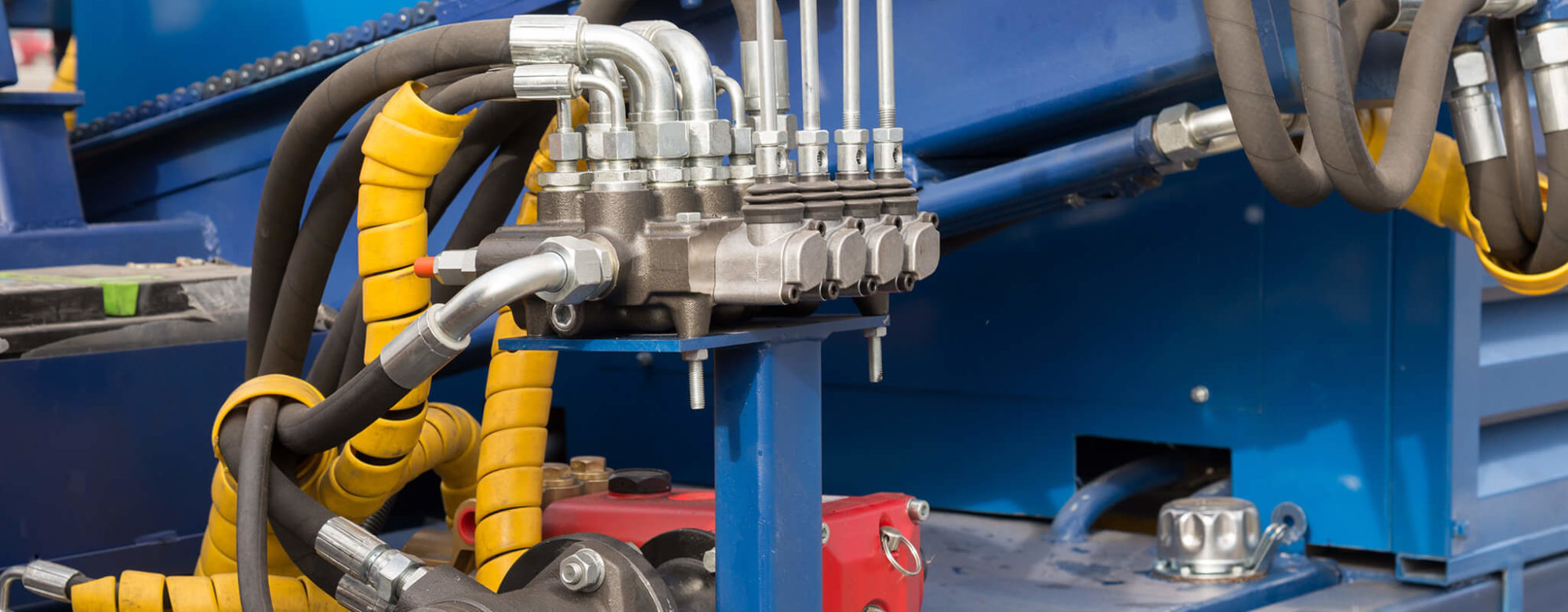
What you may have heard
Belief
If the hydraulic pump is shut off, there is no pressure and the stored energy immediately dissipates within the system.
Fact
A hydraulic system has the inherent capability to store energy even when the pump is shut off. Depending on the system design, a hydraulic system can store energy in one, two, three, or more "zones" within a system.
There are certain components, system designs, and component configurations that will allow pressure to immediately dissipate when the pump is shut off. However, there are many that don’t. It’s not possible to visually detect if there is
stored energy in a system.
Always assume that there is stored energy in a hydraulic system even when the pump is shut off. With hydraulics, it is always wise to error on the side of safety.
Belief
If you activate a hand lever-operated directional control valve or activate the override pushpin on a solenoid- operated directional control valve with the hydraulic pump shut off the stored energy will dissipate.
Fact
While the override pushpins are provided to mechanically override a solenoid-operated directional control valve, they present the same problems that manual, pilot-operated valves do. If a hydraulic system is equipped with certain types of valves, e.g. counterbalance valves or pilot-operated check valves, these valves will generally not function unless the pump is operating. In addition, many manual directional control valves and larger solenoid operated valves are pilot- operated. These valves do not shift position without pilot pressure. Pilot pressure is generally only present if the pump is operating.
Belief
A hydraulic system can be safely de-energized by "cracking" (loosening) a connector and allowing the stored energy to vent to atmosphere.
Fact
Exhausting high pressure oil to atmosphere can cause injury or death, e.g., oil injection, severe burns, eye injury or blindness. It can also present a dangerous fire hazard if the oil comes in contact with an ignition source. Therefore, high pressure hydraulic oil should NEVER be vented to atmosphere.
Belief
When a hydraulic system is equipped with an accumulator, the accumulator will automatically de-energize when the pump is shut off.
Fact
Many hydraulic systems are equipped with accumulators for the specific purpose of storing energy in the event of an unexpected power failure. These systems generally must be manually de-energized.
There are some hydraulic systems that are equipped with automatic accumulator de-energization devices. However, accumulators using this system have no way of verifying that the stored energy is depleted.
Belief
"Noise" is a realistic means of confirming that an accumulator is de-energized.
Fact
While there is typically a distinct sound when oil is discharging from an accumulator, which ceases when the accumulator is discharged, "noise" should never be used to confirm that an accumulator is de-energized, accumulator de-energization must be verifiable.
An accident can happen very quickly if a person "hears" an accumulator de-energize, and then leaves the area. How does the next person know for certain that the accumulator is de-energized if there is no "noise"?
Belief
Air-bleeding a hydraulic cylinder can be safely accomplished by "cracking" (loosening) a connector and cycling the cylinder.
Fact
Air-bleeding to atmosphere creates a range of extremely hazardous situations. These situations include:
Discharging high pressure oil to atmosphere can cause injury or death, e.g., oil injection, severe burns, eye injury or blindness.
It presents an extreme fire hazard if the oil comes in contact with an ignition source.
Certain connector designs are not conducive to careful "cracking". Discharging oil to the floor creates a situation for slip falls.
Spilling hydraulic oil can have severe environmental implications. Tens of thousands of gallons of oil are pumped out of hydraulic systems annually by air-bleeding to atmosphere, causing severe environmental contamination.

